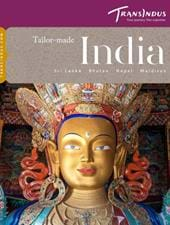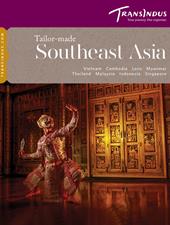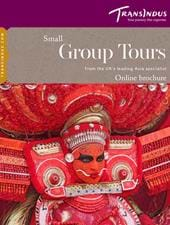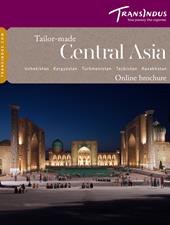Time zone: UTC +9 hours
Flying time: 11 hours
Capital: Seoul
Currency
- The currency in South Korea is the Won.
- Coins are minted in denominations of 1, 5, 10, 50, 100, and 500 won, but 1 and 5 are hardly ever seen. Bank notes are printed in 1000, 5000, and 10,000 denominations.
- Cash and Travellers Cheques can be exchanged at airports, most major banks and post offices, and some major hotels. Banks are open from 0930 to 1700 hrs, excluding weekends and national holidays. You should exchange any remaining Won you have before you leave the country, as exchanging Won outside the country can prove challenging.
- You should get into the habit of carrying more cash than you would at home. Crime levels in Korea are relatively low, but you should remain vigilant. Credit cards are accepted at most major hotels, department stores, and better restaurants but cannot be relied upon.
- ATMs that accept international credit cards are available in major tourist destinations but are usually only available until 22:00 hrs. Look for ATMs with a 'Global' for your card type.
- You will find it much more difficult to find ATMs in more rural areas.
Healthcare
- Please take professional advice on any check on any booster vaccines you may require before your travel. These include Hepatitis A and B, diphtheria and tetanus, MMR and typhoid.
- If you travel in the summer months, please ensure you take the usual precautions, such as limiting your time spent in the midday sun and drinking plenty of water. It is not advisable to drink tap water.
- We also recommend you carry a small supply of primary health care medication such as travel sickness tablets, anti-diarrhoea tablets, insect repellent, sun creams, and a general-purpose antibiotic. Although most of these items are available in Korea, the security known brands provide is far more reassuring.
- We strongly recommend comprehensive travel insurance for the entire duration of the holiday, including international flights. It is also advisable to double-check your cover for repatriation costs. Medical bills in Korea can be expensive, and English is not widely spoken at hospitals outside of the major areas.
Helpful hints when eating out
- Venturing from your hotel into the local restaurant can be daunting. Staff may not have sufficient English to explain choices, and many restaurants may be located above street level, making them more challenging.
- You can check out restaurant menus and locations online and be patient with the staff, who will do their best to help you.
- Tipping is not encouraged.
Vegetarians in Korea
- Vegetarianism is uncommon in Korea. However, vegetarians eat fish. Therefore, if you do not eat fish or meat, you must stress this to the restaurant staff.
- You will also need to be careful with broths, sauces and garnishes, which may include meat/fish products. Bimbibap, Sushi, Kimchi and Buddhist meals are generally safe to enjoy.
- Here are a few phrases you can carry with you on a card to make eating out easier:
*Jeon gogireul anmeogeoyo - I don't eat meat
*Chaesikjuuija imnida jeon chaesikjuuijaeyo = I'm a vegetarian
*I sunshine going deureogayo = Does this dish contain meat?
Clothing
- What you wear depends on when you travel and where you visit. The weather changes seasonally. Korea's weather varies with the seasons.
- Light sweaters and jackets are usually fine for much of spring and autumn, but you will require a warm outer layer from mid-October onwards.
- Winter jumpers, jackets, woolly hats, gloves, and enclosed shoes will be required from mid-November through early March.
- Light, breathable clothing, a sun hat, and sunscreen are essentials for the summer, as temperatures can rise to 30 degrees + with high humidity.
- June to August is the rainy season, and umbrellas or light waterproofs will help protect you from showers. July through late September, however, is the Typhoon season, with extremely heavy rain and strong winds lasting several days, for which you may require more robust protection.
- Irrespective of which season you travel in, please be aware that night temperatures fall by several degrees, and we suggest you equip yourself accordingly, particularly in mountainous regions.
- Avoid sleeveless tops and short skirts if your tour includes a temple visit or stay. You may also be required to remove your shoes in some temples, monuments, traditional restaurants, and washrooms. Please ensure your shoes can be removed easily and that you carry clean socks without holes!
- Finally, the golden rule for South Korea is to pack light, as porterage is rare, and you will need to manage your personal bags. Public trains do not have much room for large or bulky baggage, and stations don't always have lifts and escalators. If you have made arrangements for 'baggage forwarding,' please ensure your bags are at the front desk of your hotel by the prescribed time.
Laundry
- Most hotels offer same-day laundry service or have launderettes on-site in more popular locations, but you may need to plan better in more remote areas.
- Hotel Rooms
- It should be noted that Korean hotel rooms are more compact than in other places, particularly in Western nations.
Shopping
- South Korea provides excellent opportunities for shoppers, particularly in Seoul's fantastic markets, where you can find almost anything. When purchasing an expensive item, always check the level of duty payable in the UK on your import. Please remember VAT is payable on all goods above the value of £145 per person, even if an item is exempt from other import duties.
- Please note that we and our local associate offices in South Korea are not responsible for shopping and related issues. If you have any problems, we will do our best to help you overcome them.
Voltage
- The electric voltage in South Korea is 220V AC with a 60hz cycle. However, a 110V outlet is sometimes found. Korean plug sockets are of the round two-pin type. An adaptor obtainable at airports or electrical stores in Korea will be needed to run UK devices.
Phone calls and Internet
- To make international calls in South Korea, you will need to dial 001, 002, or 008, then the code of the country you wish to speak to.
- The most effective way to remain in touch is to take a call and data SIM card at the airport on arrival, but you will need to pre-book the service before departure. Try www.Tour2Korea.com or www.ESIMKOREA.NET. Costs start at USD $ per day, but you should check available offers before your travel.
- Free internet access is available in most hotels and some restaurants. Internet cafes are also available throughout South Korea.
Emergency Numbers
112 – Police, 119- Fire, 1339- Medical Services
Meeting for tours
- When you arrive in Korea, our agents will provide a pack of booked services via your first hotel. This will reconfirm pick-up times and places for locally booked tours. You are strongly advised to read this pack carefully and refer to the times given by the agents. If you need clarification on something, please contact the agents directly. (We will provide their contact details prior to your departure.)
- You should aim to get to the meeting place 10 minutes before you are due to be picked up. If it is away from your hotel, ensure you can reach it promptly. If you need help getting there, the reception desk at your hotel can help you.
Train travel
- Travel by train is fast, efficient, and precise. If we have booked a KR Rail Pass for you, you will not need a separate ticket for access to the reserved carriages, but you must show the pass to an attendant to pass barriers at the start and end of your journey.
- For intercity rail travel, please aim to arrive at the station at least 20-30 minutes before departure. This gives you time to orient yourself, reserve your seat if necessary, find the correct platform and buy snacks.
- The underground service is the easiest way to travel within the larger cities. While it may initially seem daunting, English-language signage will help you acclimate to it quickly. All stations display a map showing the train lines in use. Fares are paid using a self-service machine. A train map alongside the self-service machines shows the fare payable for each disembarkation point. Choose your end point and pay the fare. You can buy multiple tickets in one transaction.
- **Note on communicating in English**
- While most Koreans will have studied English for several years, their listening and speaking abilities may not be as good as their written abilities. A pen and paper could prove useful for facilitating communication.
Public Buses
- Though every city will have a bus system, it is generally the most confusing mode of transport for visitors. While busses are numbered by route, destination names at the front of the bus are only written in Korean. You pay when you get on the bus and press a bell at the appropriate stop to get off. You can also ask the driver to prompt you to get off at the right station.
Taxi Services
- Taxis are plentiful, safe and quite cheap. There are taxi stands in certain areas, but taxis can be hailed on the streets. Some taxi services are equipped with a simultaneous interpretation machine - try 'Kind Call Taxi' and 'KT Powertel'.
Points of Etiquette
- The Koreans are a tolerant society, especially regarding visitors, but observing a few key points will put everyone at ease.
- Never stick your chopsticks upright in the food when eating, as this resembles rituals for the Buddhist burial ceremony.
- You must wash before entering a public bath and ensure you are free from all suds before entering the public waters. Public baths are for relaxation and not cleaning!
- When drinking with locals, it is customary to refill the cups of those around you, and they, in turn, will refill yours. Glasses are never allowed to remain empty, and it is generally considered poor form to pour your own drink.
- Blowing your nose in public is frowned upon!
- When giving or receiving, it is polite to use both hands.
- When beckoning someone, Koreans do this palm down. Never use one finger in an upward motion, as this is how they beckon dogs.
- In Korea, using a spoon when eating rice is standard practice.
- It is generally considered rude if you start eating before your elders.







